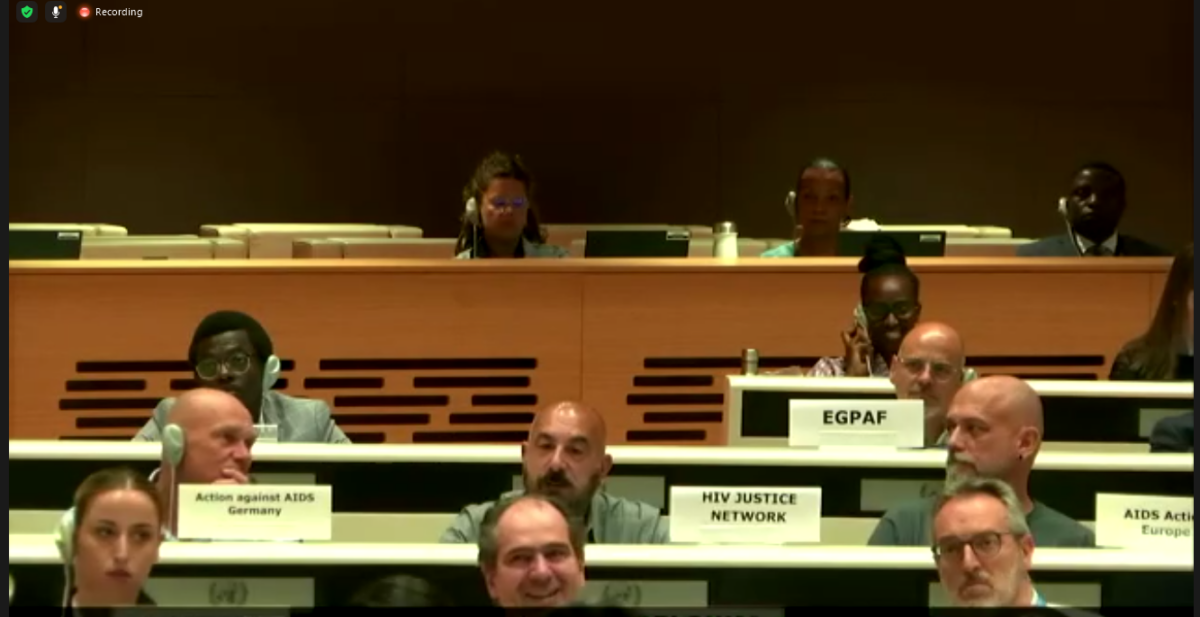
These remarks were made during the thematic session on reducing health inequities through tailored and systemic responses in priority and key populations especially transgender people, and the path to 2025 targets.
The HIV Justice Network is a community-based NGO leading a co-ordinated global response to HIV criminalisation. We’ve have heard so far about many different structural inequalities but not so much about HIV criminalisation, also covered in the background note, which disproportionately affects key populations, including transgender people, who are already criminalised or otherwise targeted by discriminatory legal systems and policies.
In fact, over 90 countries have criminal laws – based on stigma, not science – that single out people living with HIV based on our HIV-positive status. Another 40 or so countries have applied general criminal laws to unjustly prosecute and imprison people with HIV for acts that cause no risk, no harm or for which there is scant proof of either.
HIV criminalisation selectively scapegoats people living with HIV for a collective failure in HIV prevention policy including the responsibility of governments to create supportive and enabling legal environments for HIV prevention in the first place.
I last attended the PCB 12 years ago as a journalist highlighting the injustices of HIV criminalisation, which at the time was mostly overlooked as a significant legal barrier to the HIV response.
I return to the PCB as the HIV Justice Network’s Executive Director, financially supported by the Robert Carr Fund for civil society networks. Thank you to the governments that support the Fund, and for recognising that community-led global and regional networks of PLHIV and KPs are necessary and irreplaceable partners.
In the intervening years some progress has been made but far too many unjust laws continue to impact far too many people living with HIV, including trans people, gay men and other men who have sex with men, people who use drugs, sex workers and women and girls.
Today, I call on all member states that still have punitive and harmful laws that single out people living with HIV (and that’s almost all of you) to fulfil the commitments most of you made in the 2021 Political Declaration.
It would make our work so much easier if you returned from Geneva to persuade your own governments to do the right thing: either fully fund the Unified Budget, Results and Accountability Framework (UBRAF) or – the cheaper option – get rid of your own ineffective, counterproductive, punitive, discriminatory laws once and for all so we can finally achieve HIV JUSTICE WORLDWIDE!